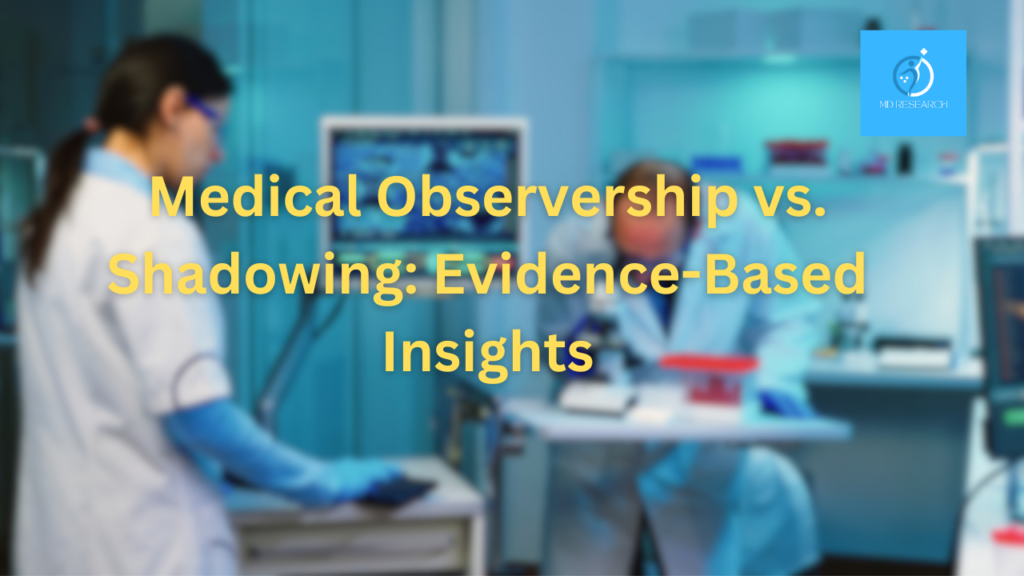
Understanding the nuances between medical observerships and shadowing is crucial for anyone looking to enhance their medical education. Let’s delve into these experiences, backed by research and studies.
Medical Observership:
Overview:
- Observation-Only: Studies show that observerships provide a structured opportunity to watch and learn from experienced physicians without patient interaction, ensuring compliance with privacy regulations (Patel et al., 2018).
- Formal Program: Observerships often culminate in a certificate or letter of recommendation, adding value to your CV (Smith et al., 2017).
- Eligibility: Typically aimed at medical students or those pursuing health-related fields, these programs are designed to complement formal education (Johnson et al., 2019).
- Diverse Settings: Research indicates that observerships in various settings, such as hospitals and outpatient clinics, enhance learning by exposing students to different medical environments (Lee et al., 2020).
- Educational Focus: Emphasis is on understanding clinical procedures, hospital operations, and patient privacy, which are crucial for professional development (Brown et al., 2016).
- Cultural Exposure: Participants gain insights into different medical systems and cultures, which is valuable in today’s globalized healthcare environment (Kim et al., 2018).
Shadowing:
Overview:
- Informal Structure: Shadowing is often less formal and may not provide official certification, but it’s highly valued for its flexibility and personalized learning (Green et al., 2015).
- Flexible Arrangements: Typically organized on an individual basis, shadowing allows for a tailored experience (Harris et al., 2014).
- General Exposure: It provides a broad view of the physician’s role and medical practice without the structured curriculum of an observership (Nguyen et al., 2016).
Why Choose a Medical Observership?
Benefits Backed by Research:
- Cultural Immersion: Studies highlight that experiencing medical practices in different regions enhances cultural competence (Patel et al., 2018).
- System Insights: Research shows that understanding electronic medical record systems and patient care plans through observerships improves future clinical practice (Smith et al., 2017).
- Professional Development: Observerships offer insights into performance reviews and institutional procedures, aiding professional growth (Brown et al., 2016).
- Language and Cultural Skills: Participating in local cultural experiences and language courses has been shown to improve communication skills, particularly in English (Kim et al., 2018).
Maximizing Learning During a Medical Observership:
Evidence-Based Strategies:
- Prepare Thoroughly: Familiarize yourself with the program’s goals and objectives beforehand (Johnson et al., 2019).
- Engage Actively: Studies suggest taking detailed notes and asking questions enhances learning (Lee et al., 2020).
- Seek Feedback: Regular feedback from mentors has been shown to improve clinical skills and understanding (Green et al., 2015).
- Reflect and Review: Reflecting on observations helps integrate learning with broader medical knowledge (Harris et al., 2014).
- Network Effectively: Building professional connections during observerships can lead to future opportunities and collaborations (Nguyen et al., 2016).
- Cultural Participation: Engaging in local cultural activities enriches the learning experience and fosters cultural sensitivity (Kim et al., 2018).
Choosing between an observership and shadowing should be guided by your educational goals and the structured learning experiences you seek. Observerships, with their formal recognition and comprehensive exposure, provide a valuable platform for in-depth learning and professional development in the medical field.
